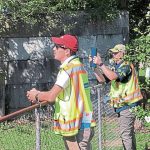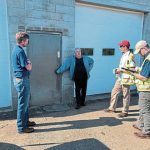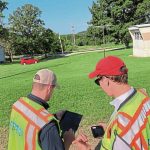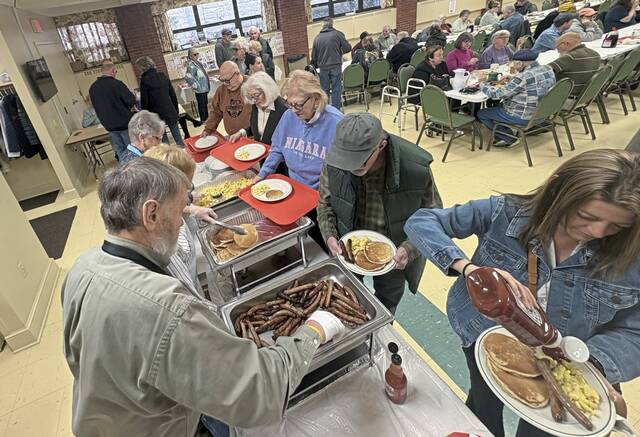Ed Egloff still can’t understand why, after 25 years of having internet service at his Derry Township auto body shop and nearby home, he has been cut off from the web.
“They’ve got to do something. This is terrible,” Egloff said.
His properties sit a few miles north of Route 22, near New Alexandria, in an area officials say appears to be both unserved and underserved by broadband internet service.
Egloff is not alone, according to Westmoreland officials who say preliminary reports compiled by the federal government suggest as many as 3,600 county residents have no access to high-speed internet service. Thousands more have service that falls substantially short of federal guidelines for adequate service.
Starting in July, a comprehensive study was begun to determine broadband needs in Westmoreland County.
County commissioners this summer awarded a $659,000 contract to Michael Baker International to conduct the first phase of a study to assess broadband needs.
Two two-men survey teams have been working for the past month, traveling to areas throughout the county that are suspected to be unserved by broadband. One crew, operating north of Route 22, has visited Murrysville and Derry, Washington and Upper Burrell townships and is expected to head east toward Ligonier and Donegal townships.
A second crew is surveying areas in the southern half of Westmoreland County, most recently in Mt. Pleasant.
Jeremy Jurick, the national broadband services director at Michael Baker International, said about half of the survey work in Westmoreland is completed, with more than 1,800 locations visited in the first four weeks of the effort.
On a sunnymorning last week, Kevin Baker and Joe Hendrix drove along gravel roads in rural Derry looking for areas believed to have little to no access to broadband. They left fliers on the doors of homes asking residents to participate in an online survey to assess internet needs and record service speeds. Information about the study can be found at westmorelandbroadband.org.
Officials want at least 3,000 residents to take the survey but hope for more.
Out in the field, Baker and Hendrix surveyed utility poles and readings of cell service to determine connectivity rates. Surveyors don’t enter homes.
They’ll stop and talk with residents if they see them outside or they are greeted when hanging doorknob tags.
“Some people think we’re selling internet,” Baker said. “A quarter of the people we see are ecstatic and say, ‘We’re waiting for you.’ ”
Egloff, too, has been waiting.
He said he operated his auto repair and salvage business for 25 years with DSL service. While slow, and at times frustrating, it enabled Egloff to have enough service to function. That changed a few years ago when his internet provider cut off service after a payment issue that was almost immediately rectified. The company refused to restore his internet, Egloff said.
He was forced to sign on with a satellite internet provider that is expensive and slow.
“It takes me 20 minutes to get on in the morning. I hope to God you can do something,” Egloff told the surveying crew.
While most broadband service is supplied through fiberoptic cables, in some cases it also can be offered through cellular service.
Broadband customers who operate with data transfer speeds of 100 megabits per second are considered to have standard service, according to federal standards. Residents with internet speeds less than that are considered underserved.
“This has been eye-opening for a lot of people,” said Corey Block, a planner with Westmoreland County’s development office.
Driving along the back roads in Derry’s farming communities, surveyors found evidence of little or no broadband service.
“The county is looking at this as an economic development issue; it impacts industry and agriculture,” Block said.
Jurick said Michael Baker is expected to complete its survey in late September or early October and submit a report to county leaders including cost estimates and recommendations for a second phase to improve connectivity.
Block said the county officials could authorize two small-scale projects this fall to install fiberoptic cables to connect several hundred underserved residents to broadband networks.
Funding for those projects must be finalized, but the county could seek additional grants or use a portion of its $105 million received from the American Rescue Plan, she said.
“We want to show people we are serious,” Block said.













